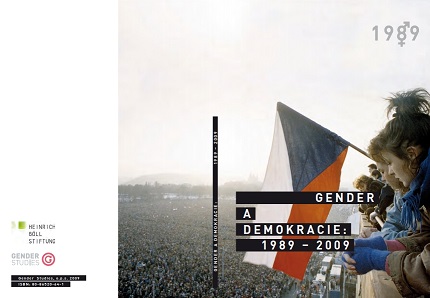
We kindly inform you that, as long as the subject affiliation of our 300.000+ articles is in progress, you might get unsufficient or no results on your third level or second level search. In this case, please broaden your search criteria.



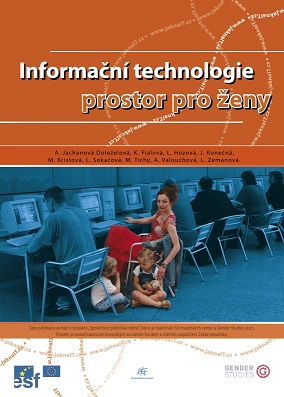

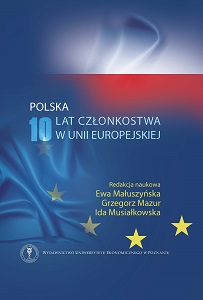
Przystąpienie Polski do Unii Europejskiej wywarło znaczący wpływ na funkcjonowanie organizacji pozarządowych oraz społeczeństwa obywatelskiego. W przeważającej mierze są to zjawiska pozytywne, można jednak zauważyć także pewne aspekty negatywne – m.in. „upublicznienie” organizacji pozarządowych czy „efekt sponsora”. Niestety, zagadnienia te są niezmiernie rzadko przedmiotem analizy zarówno w polskiej, jak i w zagranicznej literaturze przedmiotu. Celem niniejszego opracowania jest przedstawienie tego problemu w sposób możliwie najbardziej syntetyczny i próba odpowiedzi na pytania, jaki realny wpływ na proces ustawodawczy w UE mają polskie organizacje pozarządowe, w jaki sposób polski trzeci sektor wydatkuje środki z funduszy unijnych, jak UE sprzyja inicjatywom ponadnarodowym w ramach trzeciego sektora, jakie są negatywne konsekwencje przystąpienia do UE dla polskich NGO. Opracowanie skupia się na próbie analizy powyższych zagadnień, a odpowiedzi stanowią kolejne punkty pracy. Taka systematyka ma swoje uzasadnienie – analiza przechodzi od szczebla „najwyższego” – współpracy w ramach instytucjonalnych UE – do „najniższego”, czyli codziennego działania organizacji pozarządowych w ramach ich zadań statutowych. Artykuł ma charakter prawno-politologiczny i skupia się przede wszystkim na podejściu syntetycznym, podsumowując najważniejsze opracowana piśmiennictwa. Implikuje to jednocześnie charakter przedstawionego opracowania. Praca zawiera jednak także informacje oparte na badaniach empirycznych przedstawianych w badaniach naukowych. Szczególną rolę w przygotowaniu niniejszego opracowania miały artykuły z kwartalnika „Trzeci Sektor” oraz niezmiernie cenne i bogate w informacje raporty stowarzyszenia Klon Jawor. Zaproponowany wybór bibliografii powoduje jednocześnie konieczność zastosowania metody naukowej analizy i krytyki literatury przedmiotu.
More...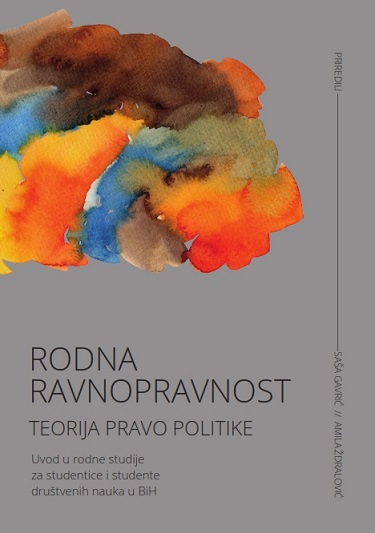
Evropska unija funkcioniše na principu vladavine prava tako da su sve njene radnje utemeljene na ugovorima na čiji sadržaj su dobrovoljno i demokratskim putem pristale sve države članice EU. Pravni instrumenti Evropske unije (EU) su podijeljeni u dvije grupe. Prvu grupu čini takozvano primarno zakonodavstvo EU – osnivački ugovori; Ugovor o Evropskoj uniji (UEU), poznat i kao Ugovor iz Mastrihta iz 1992. godine, Ugovor o funkcioniranju Evropske unije (UFEU) te Povelja EU o temeljnim pravima. Obaveze iz ugovora jesu postavile temelje za EU politike rodne ravnopravnosti i imaju posebnu težinu. One su provodive od strane država članica, EU institucija, kao i – zahvaljujući doktrini o njihovom direktnom efektu – od samih građana EU pred domaćim sudovima. Sekundarne izvore prava čine pravilnici/uredbe, odluke, preporuke, mišljenja te uputstva/direktive, koje su obavezujuće u smislu rezultata. To znači da su države u postizanju definisanih ciljeva slobodne da odluče o najboljem načinu njihove implementacije (čl. 288 UFEU).
More...
Postojanje institucionalnih mehanizama za ravnopravnost spolova se smatra bitnom pretpostavkom za ukidanje diskriminacije na osnovu spola/roda i ostvarivanje ciljeva rodne ravnopravnosti. Potreba za uspostavljanjem institucija koje će se specifično baviti ovim pitanjima je prepoznata i istaknuta tokom Četvrte svjetske konferencije o ženama 1995. godine u Pekingu (vidi rad II.1 Ujedinjene nacije autora Damira Banovića). Zaključci ove konferencije su sadržani u Pekinškoj deklaraciji i Platformi za akciju kada je zaključeno da vlade imaju primarnu odgovornost za sprovedbu Platforme za akciju te da bi mehanizmi i institucije za unapređenje položaja žena trebali sudjelovati u formuliranju javne politike i poticati sprovedbu Platforme ali i djelovati kao katalizator u razvoju novih programa (Platforma za akciju, 1995, Glava V-A). Komitet za eliminaciju diskriminacije žena Ujedinjenih naroda (Opća preporuka br. 28, 2010) preporučuje postojanje ovih institucija kao jednu od osnovnih pretpostavki za sprovođenje člana 2. CEDAW konvencije.
More...
Postizanje rodne ravnopravnosti kao ljudskog prava propisano je ustavima i zakonima o ravnopravnosti polova/rodnoj ravnopravnosti, antidiskriminacionim zakonodavstvom i cijelim nizom međunarodnih instrumenata ljudskih prava koje smo obavezni poštovati i primjenjivati. Odredbe kojima se štiti ravnopravnost i zabranjuje diskriminacija po osnovu pola/roda dio su i sistemskih i drugih propisa u različitim oblastima, od zakona, podzakonskih i drugih akata, pa sve do strateških i planskih dokumenata, odnosno javnih politika. U čemu je onda problem, pitamo se. Zašto ove deklarativne odredbe u zakonima ne znače odmah i njihovu primjenu u stvarnosti? Zbog čega i dalje postoje izražene rodne neravnopravnosti, pa čak i diskriminacija i nasilje kao ekstremni oblik diskriminacije? Zašto određene mjere vlasti imaju različite učinke na različite društvene grupe muškaraca i žena? Zašto naoko neutralne norme imaju nejednake efekte, iako nejednakost ili čak diskriminacija nisu uopšte bili namjera zakonodavca ili donosioca neke mjere? Zbog čega „ne vidimo“, odnosno odbijamo da vidimo da rodne nejednakosti postoje i da je njihovo uporno opstajanje zapravo legitimisana nejednakost u moći, podjeli rada i pristupu resursima?
More...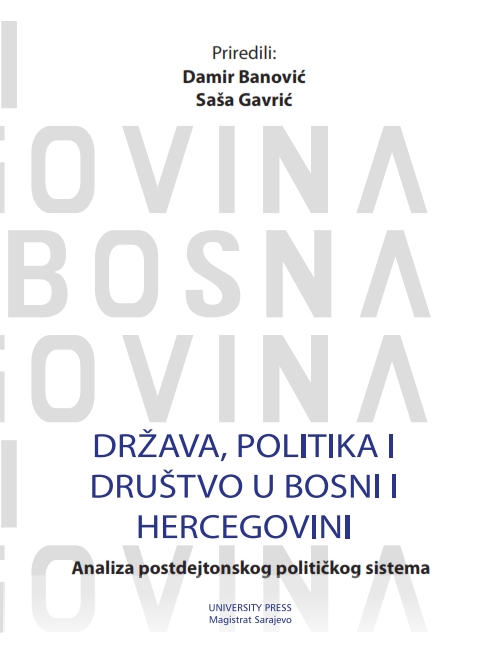
ljudska prava se temelje na pojmu urođenog dostojanstva svih ljudskih bića. Univerzalna su, neotuđiva, nedjeljiva i međuovisna. U Bosni i Hercegovini ljudska prava se štite na nivou države, kao i na nivou entiteta. Ustav Bosne i Hercegovine, te ustavi entiteta, na specifičan način štite ljudska prava, kroz direktnu primjenu Evropske konvencije o zaštiti ljudskih prava i osnovnih sloboda.
More...
U radu su obrađeni ključni aspekti ostvarivanja prava pripadnika nacionalnih manjina u Bosni i Hercegovini. Prikaz osnovnih prava nacionalnih manjina garantovanih međunarodnim dokumentima dat je u oblasti društveno-političke participacije i ostvarivanja prava na kulturnu autonomiju (pravo na njegovanje sopstvene kulture, pravo na obrazovanje, informisanje i službenu upotrebu maternjeg jezika). iako u ovom radu nisu posebno isticani problemi nacionalnih manjina na prostoru Bosne i Hercegovine, jasno je da postojeći sistem zaštite njihovih prava ostavlja prostor za dalje unapređenje.
More...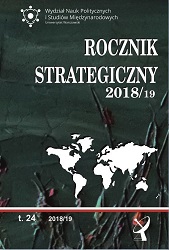
The article discusses the evolution and functioning of the Common Security andDefence Policy of the EU in 2018. The authors start with an analysis of externaland internal determinants of cooperation within CSDP, with particular attention tothe impact of transatlantic relations and US approach to the European initiativesas well as of internal tensions in the EU. Then they discuss the implementation ofthe decisions from December 2017 on the initiation of PESCO, which constitutesthe central topic of the paper. The functioning of European Defence Fund is alsoanalyzed, as well as the essence and implications of the French proposal of EuropeanIntervention Initiative (E2I). In the last part of the article, operational engagementof the EU is briefly presented, including a discussion of modifications of CSDPand ways of implementing them, namely Civilian CSDP Compact (CCC), and thedebates over the future of maritime activities of the EU in the Mediterranean. Theauthors conclude with an assessment of the results of the development of PESCOand EDF in the last year and of the perspectives of future cooperation.
More...
After several years in which the reports from the Middle East were dominated bynews on the fight against the Islamic State, in 2018 there was a significant change.A series of failures of IS in 2016-2017 led to the situation in which the basic questionconcerning the Middle East focussed not so much on the way to overcome theorganization, but rather on the essence of the new international order, shaped asa result of clashing interests of different states and political forces. In Syria, plungedinto civil war since 2011, the scale of victory clearly shifted to the side of the forcesfaithful to President Bashar al-Assad. In Iraq, after a period of cooperation of differentpolitical forces faced with IS expansion, ethnic and confessional divisions revivedagain. At the same time, mechanisms for seeking effective ways to eliminate threatsto the stability of the country have been introduced. Conflicts in Libya and Yemenare still far from settled. Both countries have no governments that can effectivelycontrol the situation in their territories and external actors get involved to furthertheir particular interests. Local conflicts thus become a playing field for competingregional and global powers, hindering stabilization processes.
More...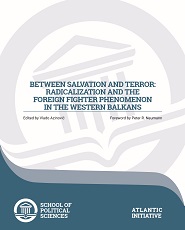
Over the last five years, a rise in radicalizing forces in the Western Balkans has manifested in the emergence of the foreign fighter phenomenon – the single most obvious indication of radicalization into violent extremism in the region. This has brought new security challenges and risks, including the departures of citizens to rebel-held territories in the Middle East. While some of these individuals are women, children, and elderly people who have not become foreign fighters, it is believed that from the end of 2012 through the beginning of 2016, up to 950 persons from Western Balkans countries travelled to Syria and Iraq. [...]
More...
With some hundred or more Albanian citizens having now joined the Islamic State of Iraq and the Levant (ISIL), radicalization has become a salient issue in both policy and scholarly domains in Albania. Given the Albanian tradition of religious tolerance and moderation, the quest to understand and explain the foreign fighter phenomenon has sparked extensive debate – in media, among the public, and within academia. Explanations for this trend have focused mainly on the socioeconomic factors affecting certain local communities and individuals, and on the failure of state institutions in some sectors, including in security, intelligence, and education. In general, academic researchers and pundits alike argue in favor of a more robust response by the government. [...]
More...
The case of Albania – a new NATO member and an aspiring EU state – reflects that of many Western Balkans countries which have seen their citizens, largely from Muslim-majority areas, join extremist organizations in the Middle East since the 2011 outset of the Syrian conflict. The number of foreign fighters hailing from Albania and the rest of the region peaked when Abu Bakr Al-Baghdadi, the alleged leader of the so-called Islamic State (ISIL), declared the formation of a new “caliphate” in 2014, in territories in Syria and Iraq, and called on Muslims from around the world to migrate there. Security and intelligence services in the region quickly took action against homegrown extremist cells that recruited and facilitated the travel of citizens in response to Al-Baghdadi’s call. However, questions remain over what motivated citizens from Albania to join extremist organizations and the pattern of their radicalization. [...]
More...
The current religious life of Muslims in Bosnia and Herzegovina is about returning to domestic traditions and reducing the post-communist euphoria in public demonstration of religion. The fall of the socialist order led to this euphoria, which was intensified by the aggression and war in Bosnia and Herzegovina – seen, in the minds of Bosnian Muslims, as aimed at destroying Bosnia and Herzegovina as a state and Bosniaks as a people. Meanwhile, the pluralization of the Islamic religious scene in Bosnia and Herzegovina has resulted in the emergence of non-traditional forms of Islamic religious practice. On one hand, this pluralization occurred within the Islamic Community as a consequence of its openness toward other madhhabs and Islamic experiences, and as a result of its exposure to globalization and other broader social and cultural shifts. On the other hand, it occurred outside the Islamic Community and, sporadically, against it, through advocates of different alternative, and in principle, sloppy and rigid interpretations of Islam. The vast majority of Bosnian Muslims perceive these alternative views as attacks on the traditional Bosnian practice of Islam, and they reject them as unacceptable attempts to replace a religion of joy, serenity, and tolerance with a religion of gloominess, discontent, and exclusiveness; attempts to abandon a religion that palliates in order to accept a religion that aggravates.
More...
Like other countries in the region, Montenegro has had its fair share of citizens participating as foreign fighters on battlefields abroad; and for the purpose of this study, we will focus on Montenegrin foreign fighters in Syria and Iraq. Due to its geographical location and shared borders with countries that have dealt to a greater degree with this phenomenon – such as Bosnia and Herzegovina, Kosovo, and Albania – the number of Montenegrin foreign fighters joining the fronts of the so-called Islamic State has varied over time, reaching its peak in 2014. Numbers in 2016 were the lowest they have been since the start of the phenomenon; and one can argue that this is the result of legal and operational mechanisms implemented by the Montenegrin government in 2015. [...]
More...
The recent emergence of the foreign fighter phenomenon, which has entangled citizens of Kosovo, has attracted significant attention among policymakers, security analysts, and academics at the local and international levels. In Kosovo, the jihadist ideology linked to the phenomenon is unprecedented, at least insofar as its scale. Even the Afghan Wars (1978-1992 and 2001-present) and other Middle Eastern conflicts, which have attracted some 5,000 to 20,000 foreign fighters – many from Europe and the United States – have not inspired certain elements of Kosovo’s Muslim population like the recent conflict in Syria has. Many authors have pointed to the ease of travel and the proximity of the Syrian conflict as important factors in explaining the extraordinary numbers of European foreign fighters taking part in the war there. Yet, the Bosnian war (1992-1995), which attracted a few thousand fighters from around the world, including from other parts of Europe, did not attract fighters from Kosovo in any significant numbers, despite their even closer proximity and potential geostrategic interest in fighting Serbia. [...]
More...
As the Syrian crisis has escalated, Slovenia – like a number of European countries – has faced the departure of volunteers for Middle Eastern battlefields. There has been a growing interest among young members of local radical Salafi associations to engage in jihad, which compelled the first two such departures of young men, both converts, in the summer of 2013. They were followed by a third in October of that same year. The radicalization of these young men occurred very quickly, with less than a year passing between their conversion to Islam and their departures for foreign conflict zones. These cases serve as proof that the radicalization process can be expedited by aggressive religious propaganda, particularly that viewed on the Internet, which keeps adherents up-to-date on and personally invested in the situation in Syria and Iraq. The Internet is also the platform of choice for extremist activities of almost any type that address people in their local languages, as part of an effort to spread propaganda. [...]
More...